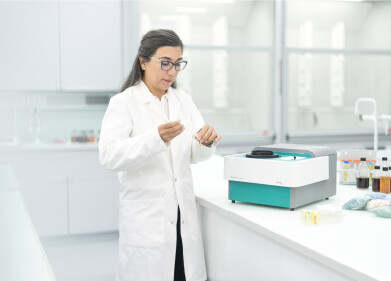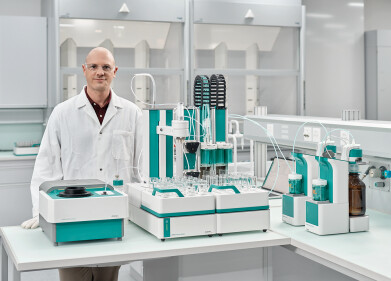Mass Spectrometry & Spectroscopy
Can Smoking Change Your DNA?
Nov 17 2016
It’s no secret that smoking is detrimental to the health, and now a team of scientists has gone one step further and confirmed that inhaling toxins leaves an “archaeological record” on the body’s genetic landscape.
After sequencing thousands of tumour genomes, the scientists found that there’s a direct link between the number of cigarettes smoked during a lifetime, and the intensity of tumour DNA mutations. For smokers that average 20 cigarettes a day, the scientists put the lung cell mutation count at around 150 per year. These mutations are permanent and cannot be reversed, even after giving up smoking.
Cigarettes cause lung cell mutation
The ground-breaking study was published in the journal Science, and involved scientists from a host of leading institutions, including Cambridgeshire’s Wellcome Trust Sanger Institute and New Mexico’s Los Alamos National Laboratory.
Prof Sir Mike Stratton, joint lead author of the study explains, "The more mutations there are, the higher the chance that these will occur in the key genes that we call cancer genes, which convert a normal cell into a cancer cell."
Not only do cigarettes cause lung DNA mutations, but they also trigger a host of other health abnormalities. On average, a pack-a-day translates to 97 tumour DNA mutations in the larynx or voice box, 23 in the mouth, 18 in the bladder and six in the liver. Essentially, smoking appears to accelerate a natural mutation process, though Stratton is unsure exactly how this unfolds, and describes the phenomenon as "mysterious and complex."
Unsurprisingly, the researchers confirmed that the DNA mutations were only present in tissues that were directly exposed to the carcinogenic chemicals in tobacco smoke. So, while the lungs were hotspots for tumour DNA mutations, tissues like the bladder remained unaffected.
A new cancer cure lead?
While it’s bad news for smokers, the research could unlock exciting new insight into cancer treatments. Researchers are suggesting that analysing the DNA of lung tumours could help them to understand the fundamental causes of other cancers.
It’s an exciting step forward for the scientific community, as well as the medical sphere. Stratton is confident that the same approach can be transferred to a broader medical context, and used to find out more about the underlying causes of other, less understood cancers.
"By looking in the genomes of the cancers, we will find the archaeological traces of past exposures which have been responsible for generating the cancers and that may potentially lead to prevention," he said.
Skin cancer is another major killer, with medical scientists yet to find a cure. For more information on the latest developments on melanomas and other skin related cancers, ‘Sun, Safety, Spectroscopy - The Science of UV Measurement and Assessing Sun Protection’ is a fascinating read.
Digital Edition
Lab Asia 31.6 Dec 2024
December 2024
Chromatography Articles - Sustainable chromatography: Embracing software for greener methods Mass Spectrometry & Spectroscopy Articles - Solving industry challenges for phosphorus containi...
View all digital editions
Events
Jan 22 2025 Tokyo, Japan
Jan 22 2025 Birmingham, UK
Jan 25 2025 San Diego, CA, USA
Jan 27 2025 Dubai, UAE
Jan 29 2025 Tokyo, Japan



















